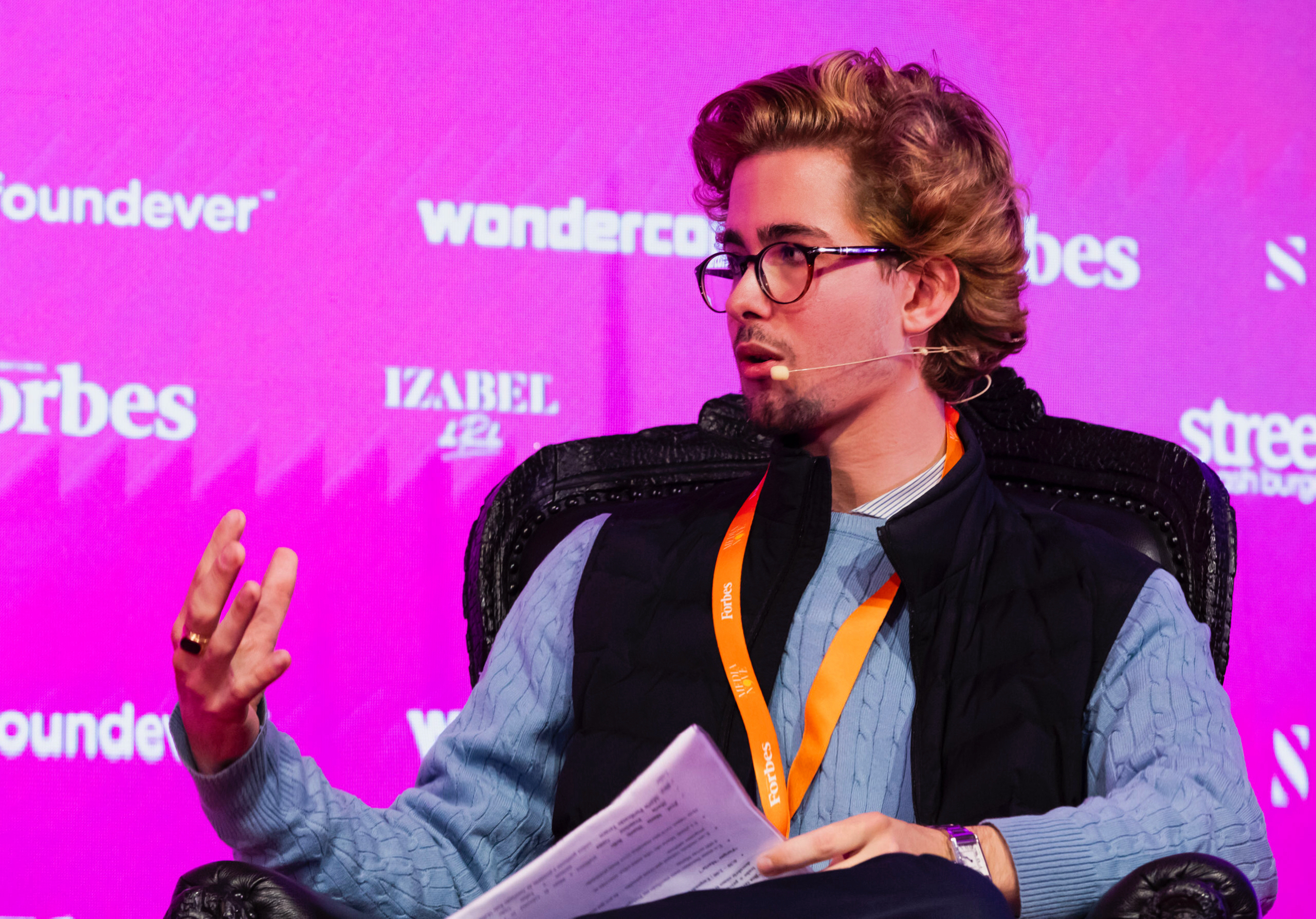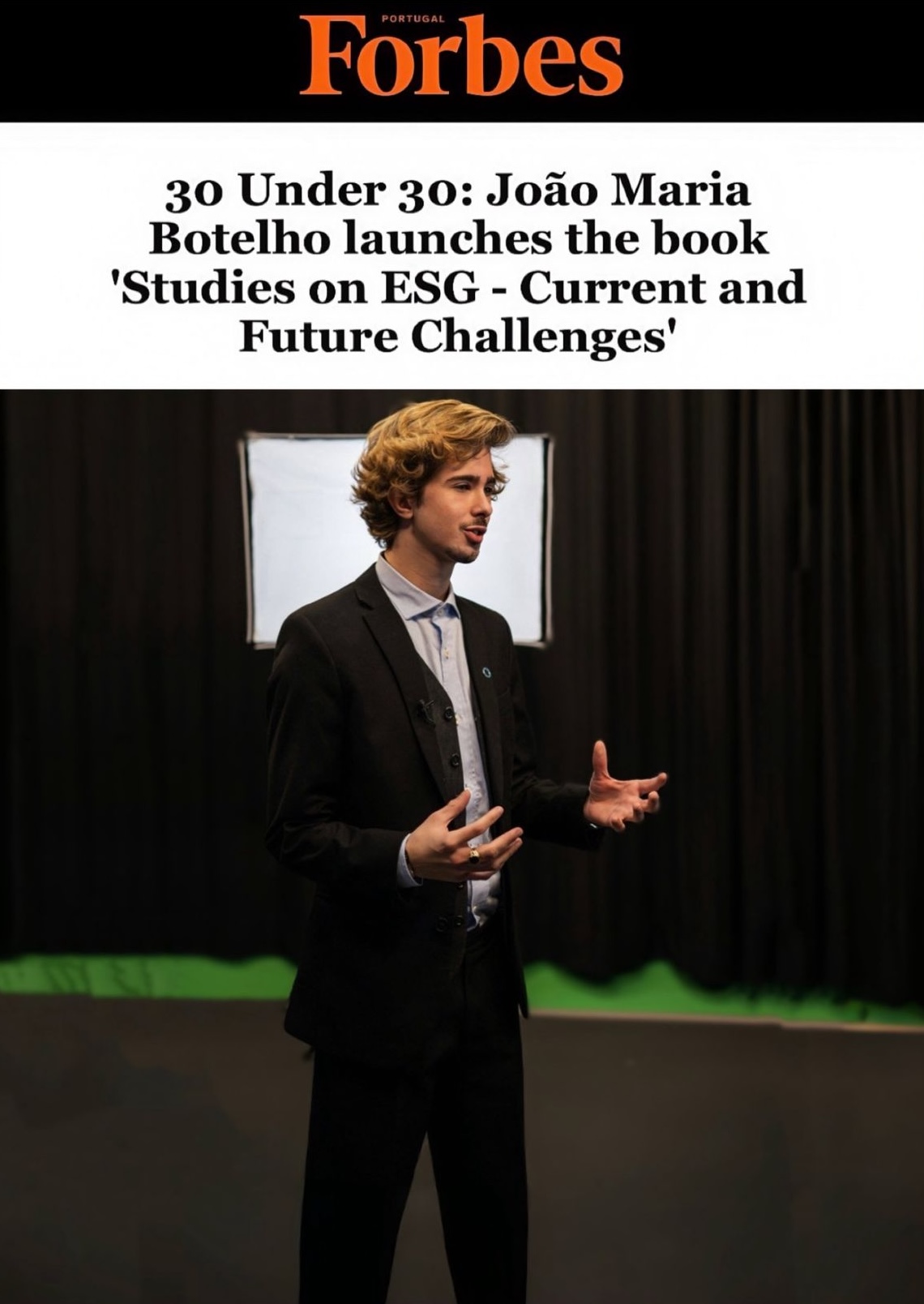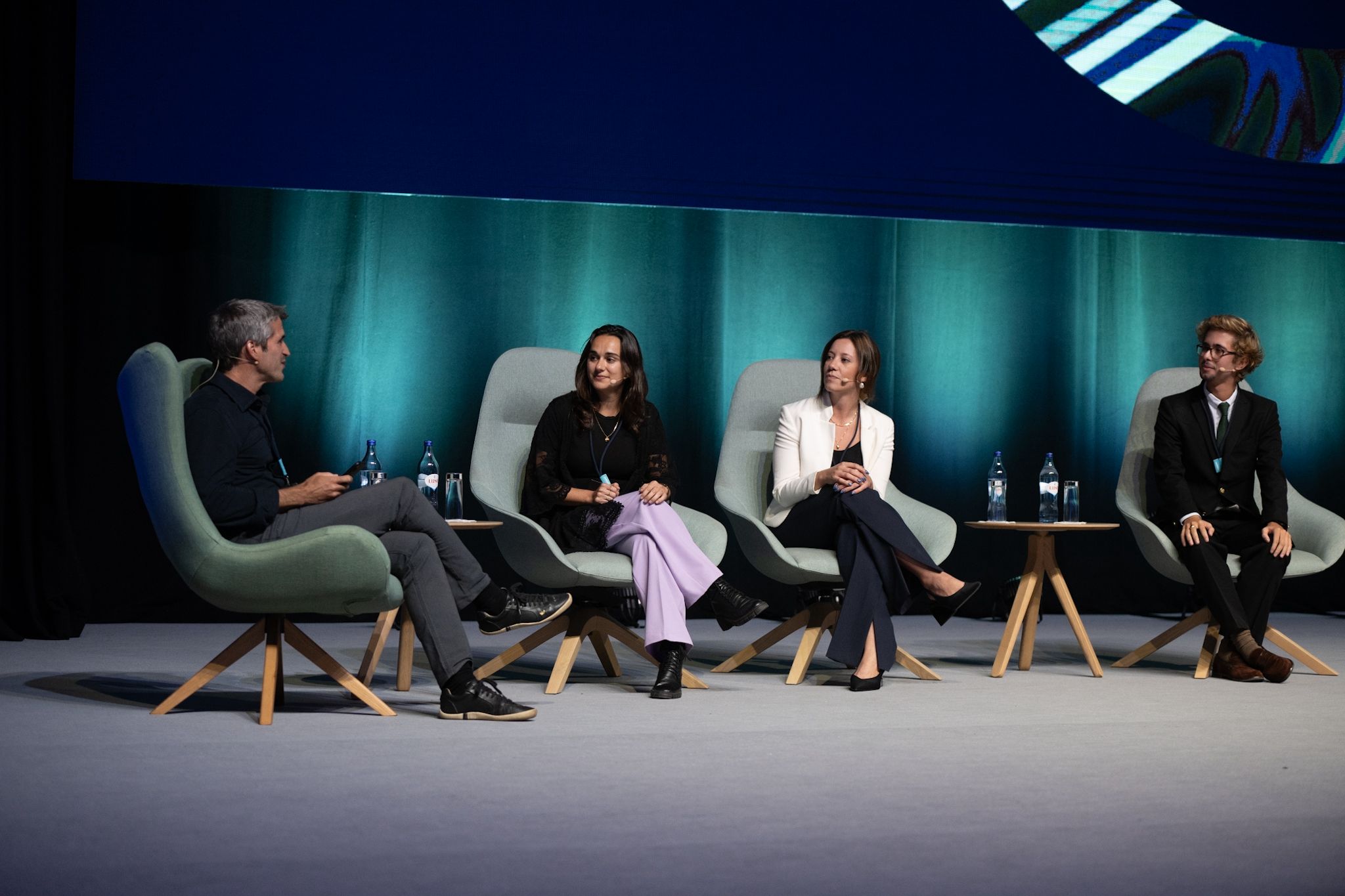Sustainable Literacy

Empowerment through Literacy
Building on João Maria Botelho’s work in publishing Portugal’s first national ESG handbook, this section sets out the mission of empowerment through sustainability education and literacy.
The First Vessel of Portuguese Sustainability
Recognised by Forbes as a 30 Under 30 in Sustainability and Social Innovation, João Maria Botelho coordinated and authored the first national ESG handbook – Estudos Sobre ESG (Environmental, Social & Governance) – Desafios Atuais e Futuros. This landmark publication stands as the first vessel of sustainability literacy in Portugal, charting a course through waters that had yet to be navigated in the national landscape.
The book, spanning over 500 pages, brings together 22 experts from across disciplines (law, economics, climate, governance) creating what its coordinator describes as “the book I wish I had when I first engaged with sustainability”. More than an academic compilation, it serves as a practical tool to demystify sustainability, illustrating that we now face a critical juncture in our collective history: sustainability is no longer a reputational choice, but a legal, financial, and strategic imperative.

Why This Work Matters ?
The handbook arrives at a pivotal moment. Portugal currently ranks 22nd among 34 European countries on sustainability performance, with a score of 70.6 out of 100. The work addresses key themes such as:
- (I) Energy transition and the role of nuclear power
- (II) Sustainability in financial markets
- (III) Mental health as a social dimension of ESG
- (IV) The historical evolution of sustainability
- (V) Sustainable luxury and its practical implications
This publication marks only the beginning of a broader mission. As João Maria Botelho told Forbes, the idea emerged from “the need to continue this personal mission of demystifying sustainability and showing that we are already at a more critical moment in our collective history. Link for the interview
His work – recognised as founder of Generation Resonance – demonstrates that through education and literacy, we can build an integrated narrative.
One that goes beyond a single vector of sustainability and embraces a holistic, transformative approach.
The Future of Sustainability Literacy
This pioneering effort lays the foundations for the future of sustainability education in Portugal. As the author himself explains, “this handbook allows the reader to better understand the current context, the main challenges, the opportunities, and, above all, how to navigate the increasingly complex regulatory frameworks of sustainability.”
The first vessel of Portuguese sustainability has already set sail. The mission now continues through the empowerment of a new generation of leaders, policymakers, and citizens, equipped with the knowledge to navigate both today’s and tomorrow’s sustainability challenges.

Podcasting for Sustainable Literacy
As part of the mission to advance sustainability literacy, João Maria Botelho has developed two podcast projects that bridge knowledge, dialogue, and action. Both series reflect a commitment to making complex themes accessible while connecting academic expertise with the voices of today’s and tomorrow’s leaders.
Decoding Sustainable Finance
Decoding Sustainable Finance (DSF) is a six-episode series dedicated to unpacking the fast-evolving world of sustainable finance. Hosted by João Maria Botelho alongside colleagues Dussu Djabula and Raquel Burgoa Dias, the podcast explores the regulatory, economic, and ethical dimensions of finance in the age of climate transition.
From the EU Green Taxonomy to fintech, from climate justice to strategic litigation, DSF brings together leading academics and practitioners such as Nicoletta Centofanti, Paula Redondo Pereira, Tiago de Melo Cartaxo, André Castro Silva, Daria Shapovalova, and Ivano Alogna. The series offers both specialists and newcomers the tools to understand how finance intersects with sustainability, justice, and global governance.
Find out more here: Decoding Sustainable Finance
Tomorrow Talks
Tomorrow Talks was launched by Generation Resonance, the international leaders platform (protocoled for the good with United Nations Association Portugal), under João Maria Botelho’s leadership. It provides a stage for young voices to engage directly with senior figures in law, politics, business, and international relations.
With guests including Professor Armando Marques Guedes, Mónica Ferro, Miguel Morgado, Eduardo Ferreira, Alice Khouri, and Eduardo Ferreira, the podcast has quickly established itself as a reference point for dialogue between generations. In its first five episodes alone, Tomorrow Talks surpassed 8,000 replays across more than 10 countries, reflecting a growing global appetite for youth-driven debate on sustainability and the future of society.
More than a conversation space, it seeks to inspire critical thinking and action on issues ranging from climate change and geopolitics to artificial intelligence and social inclusion.
Together, Decoding Sustainable Finance and Tomorrow Talks represent two sides of the same mission: to empower through knowledge. One decodes the technical and regulatory frameworks shaping the financial system. The other amplifies the voices of youth as agents of change. Both create bridges between expertise and society, equipping listeners with the literacy needed to navigate today’s sustainability challenges and prepare for tomorrow’s.
Find out more here: Tomorrow Talks
Great conversations often start with a single message.
João Maria Botelho is open to dialogue.